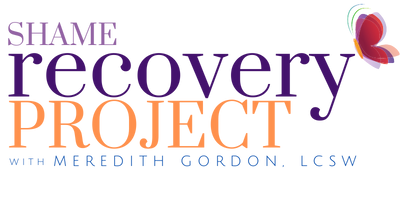Shame does a number on us. Half the time (or more) it’s not even ours.
Some things are meant to be deconstructed. Shame is one of them.
You begin to emerge from shame when you deconstruct it instead of it deconstructing you.
And I mean deconstructing the hell out of it. Making it a project. After all, it’s made you a project. So, here we turn the tables.
You may find that the shame you are feeling does not actually belong to you.
Often shame after a traumatic event is that kind of shame.
We feel ashamed of what we did to survive—even when what we did was not shameful.
•••
When it comes to shame recovery there are three crucial moves you have to make:
1. Examine the shame. Get to know it. Find words to describe it. Stop trying to fight it—not because you need to “accept” it but in order to understand its exact origins. We have lots of posts on this.
2. Fact-check the shame. Like, really fact check it. Where does it come from? Why is it there? Be objective as opposed to subjective. Basically, who does it really belong to? Is it a product of scapegoating, for example? Shame that has been dumped on you, either consciously or unconsciously, is scapegoating. We have a section devoted to scapegoating, shame, and self-blame.
3. Get curious. Deconstruct the shame you feel. Identify every aspect of it. Become a student of yourself. Observe (as opposed to judge) your reactions, emotions, and thoughts. This is what mindfulness is and it goes a long way in helping to approach shame with more agency.stabilizing
When you are in recovery from shame—for example, after a recent trauma or, perhaps, decades into a period when you can recall no distinct trauma—you move into a space within yourself that holds the memory of the pain. This could be something that happened in the family, at school, as a child or teen, in a relationship, at work. You may have been sober or not. A participant or bystander. There are many scenarios that trigger the onset of shame. Can you identify yours? Or a sense of what it was even if you can’t pinpoint it?
This is such deep and tender work that I want to say: be gentle and kind to yourself. If you are not sure how to be gentle or kind start with acknowledging your dedication to this process. Being a witness to yourself is huge.
The practice of shame recovery is to take those until-now buried, neglected, scary, shame-filled memories, in whatever shape they present themselves, and begin to deconstruct them, and your relationship to them.
This is how you assign meaning to this shame, as opposed to this shame assigning meaning to you.
Photo by Dayne Topkin on Unsplash
